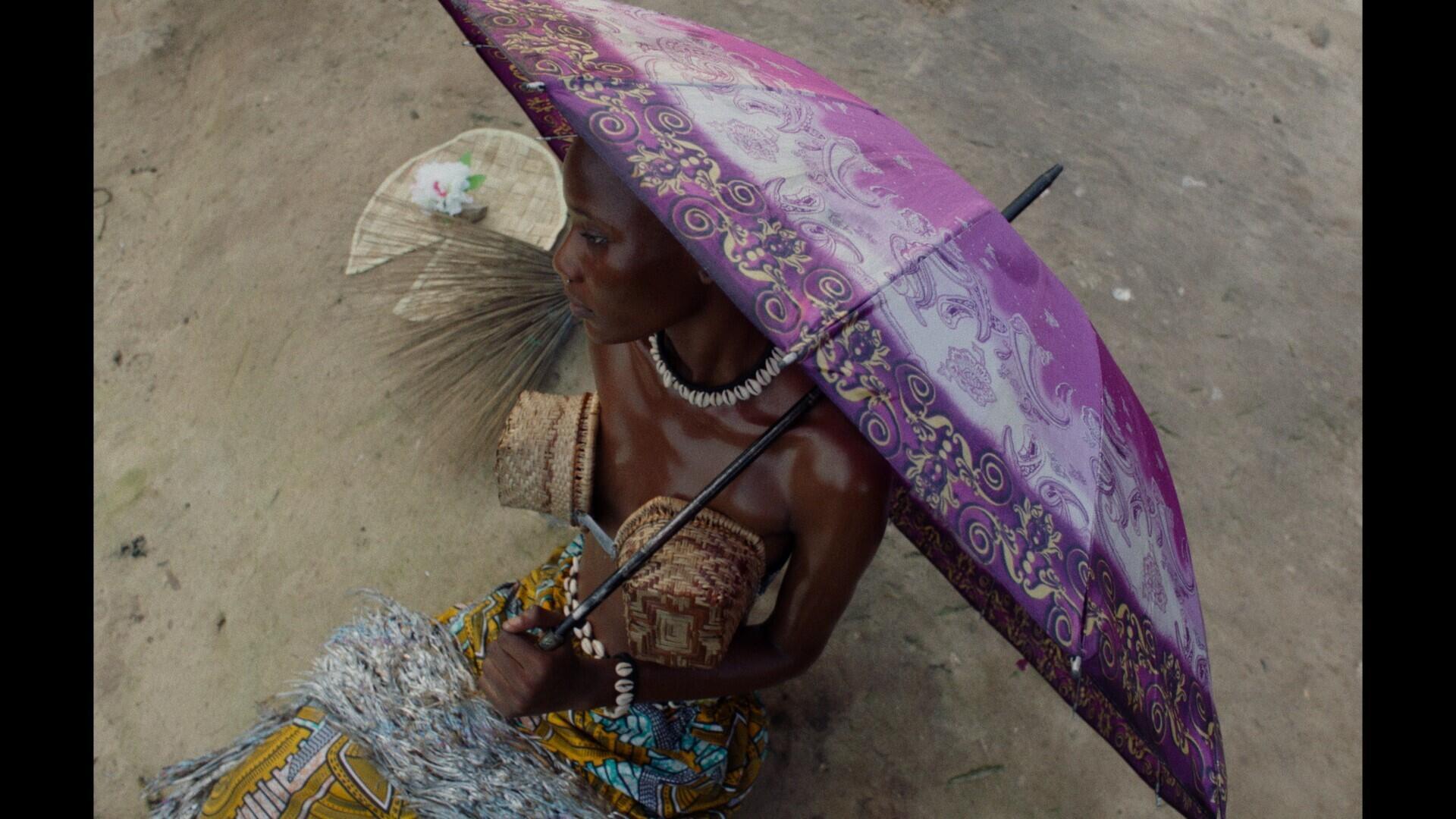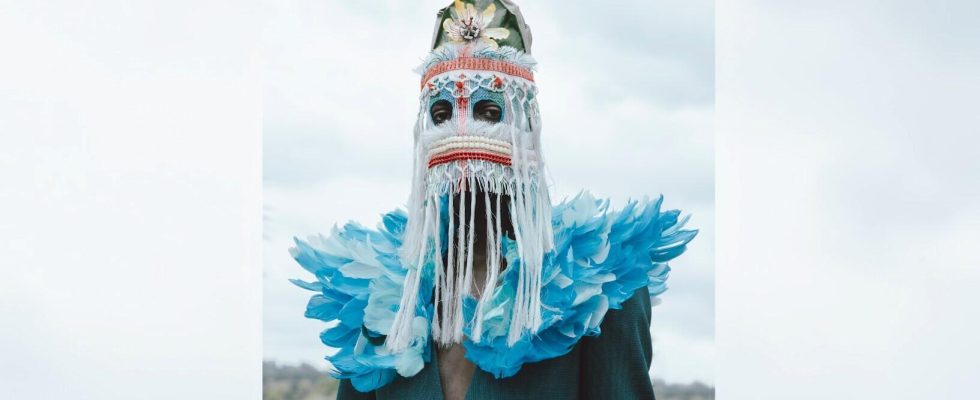Run there! His first feature film Augur is released this Wednesday, November 29 in theaters in France and the New Voice prize at the Cannes Film Festival was well deserved. The Belgian-Congolese artist Baloji stands out with his courage and creativity to tell this story of a wizard like no other.
“ Watch out for the ceiling ! » « Don’t worry, it’s the story of my life. » On the way to the recording studio, Baloji kindly makes us understand that he is a master in the art of managing obstacles. The many difficulties in his life he transformed into peculiarities and advantages.
Congolese born in Lubumbashi, in 1979, he became Belgian living in Liège and has just entered the history of cinema, of Congo and of Belgium if you please. Last May, he was acclaimed as the first Congolese in the official selection of the Cannes Film Festival with a fiction film. And with the same film, Augurhis first feature film (!), he currently represents Belgium in the race for the 2024 Oscars. Humble reaction from the artist: “ When we were selected, it was a fabulous reward for the project. »
“Clothing is an extension of oneself”
In fact, her dazzling appearance is already part of her ability to attract attention. Thanks to his spectacular attire, each appearance of Baloji is an event, staged by this elegant giant of more than two meters. To top it all off, he loves wearing big hats, as if he could more easily showcase all his talents as a filmmaker, performer, rapper, composer and wildly creative stylist. So much so that the Antwerp Fashion Museum in Belgium is currently dedicating an exhibition (Augurism) to the sets and costumes of his films.
“ My sartorial aura ? he repeats the question, searching for words. It is not very complicated. I really come from the tag. And from tagging, I arrived at graffiti and graphics. Then I became interested in materials and factories, then I started working with professors from the Antwerp Fashion Academy. They taught me to relax about my desires in terms of clothing, to think about men’s wardrobe, to think about the materials that we could use. »
And this stuff of dreams is found throughout the film. “For example, we reworked lace, which is a fairly noble material to begin with, and we discovered that it had been imported to the Congo during the years of colonialism. Except, they had replaced the lace with raffia. All of this becomes a material on which we work in the film and at the same time which dresses me in my performances or in my representations. There is always a fairly playful aspect to clothes and a way of breaking down barriers, of deconstructing the way we wear them. Because I think clothing is an extension of yourself too. »
[Vidéo] Baloji in a word, a gesture and a silence
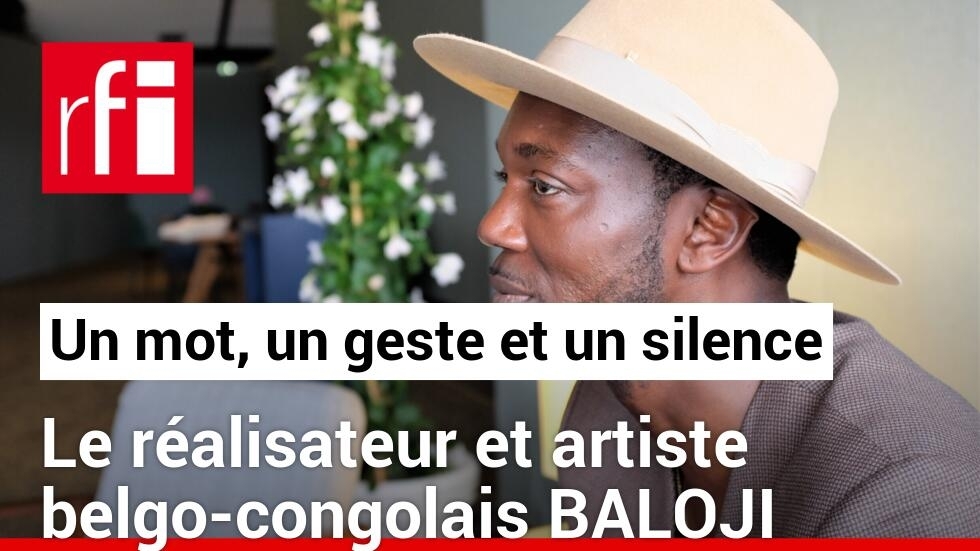
“Augure”, a cinematographic manifesto against assignment
At Baloji, in creation, nothing is incidental, everything is at the center. He abolished the border between reality and dreams. He finds it normal to compose four albums of music to indicate to the film team the universe and the point of view of the four main characters. His Africa is a futuristic present and a fantasized future at the same time. At the same time, his crazy ideas have long had difficulty convincing the world of cinema. “ Oberhausen changed my life », he admits when talking about the major international short film festival in Germany where he left in 2019 with the main prize for his short film Zombiesa hallucinatory stroll in Kinshasa.
Augur tells of the return of a Congolese man to the country to introduce his wife, a White woman, to the family. But the real story at the heart of the film is the assignment of Koffi as a sorcerer, because he was born with a wine stain. For this, he, the hero of the film, must share his status as the main role with three other characters, also considered sorcerers, even if for other reasons. And Baloji, born with a first name which also means “sorcerer” in Swahili, does not hide the fact that the problem of assignment has remained omnipresent since he lived in Belgium:
“ Oh, the number of assignments I face on a daily basis as a black man… They are many, they are unspeakable. I couldn’t name just one, because, in fact, I am constantly confronted with structural racism, class contempt… »
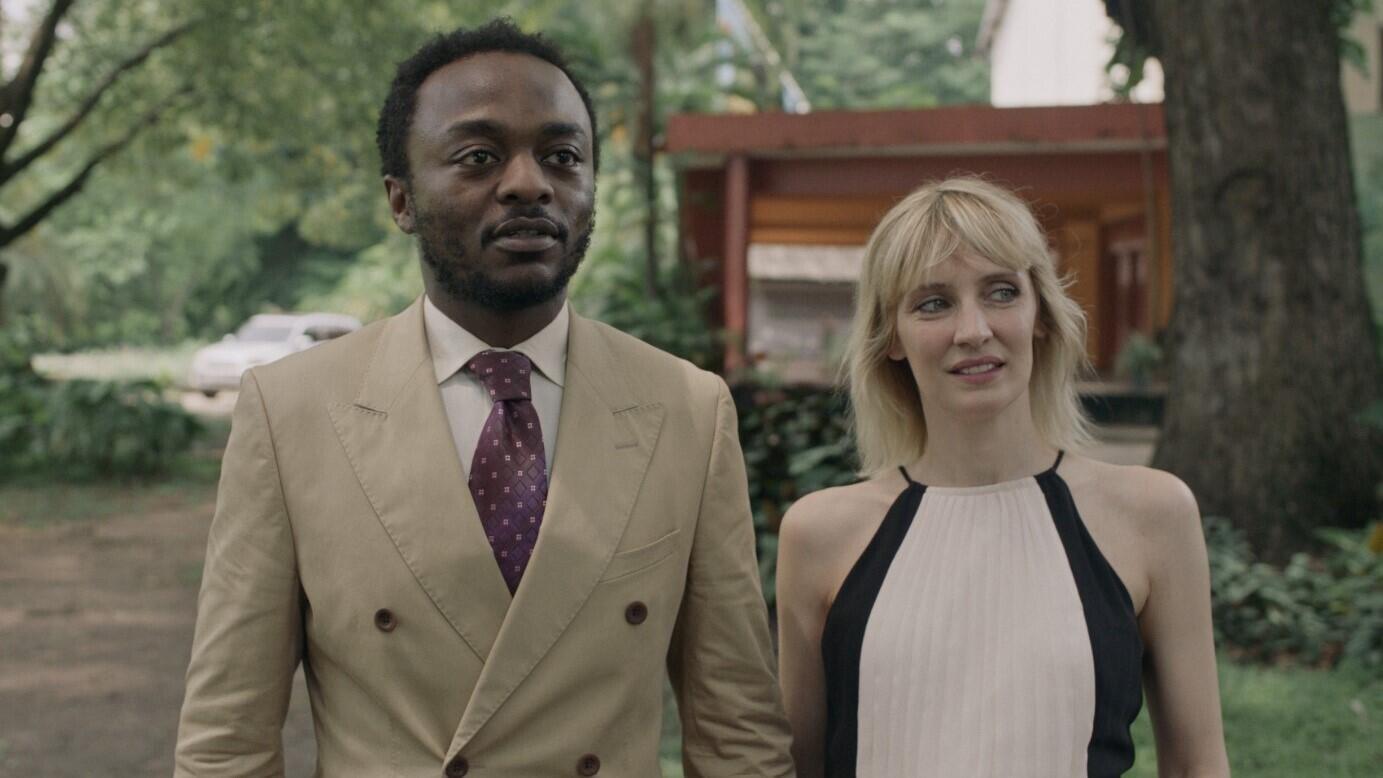
From Lubumbashi to Liège
To resist attacks and remain standing, Baloji has always had to rely on himself. At the age of 4, his father took him to Belgium, without saying a word to his mother, who remained in Lubumbashi. The little boy Baloji Tshiani is forced to learn French the hard way, in a boarding school with the Jesuits. After the shock of uprooting follows the shock of downgrading. His father, a businessman, went bankrupt. The family moves into public housing. Baloji quits school, leaves home at 15. He revolted through music, becoming MC Balo, member of the group Starflam, at the time the rap sensation in Belgium. But he refuses to consider music as a savior or miracle cure.
“ I really did things just out of willpower. Afterwards, yes, it is quite violent to live in a family structure where we go from a certain comfort to radical poverty. This is not obvious. » For him, the decisive element, “ rather, they are human relationships. It’s making music with people who had a different background than mine and who allowed me to have other perspectives. »
And yet, it is certainly not insignificant if he composed and sang texts like “ As long as music temporizes me / I will never be this criminal that I could have been “. An excerpt from his first solo album Hotel Impalarewarded in 2008 with two Octaves [Victoires] Belgian music including Artist of the Year. Indeed, before succeeding, he almost went wrong in his youth. The irony of fate, today, at the age of 44, with his great talent for investing in and connecting the arts, his sense of innovation, social justice and humanism, and endowed with a immense perseverance, Baloji could very well serve as a model for young people who do not want to be forced to choose between two countries: “ I am at the crossroads of these two identities and other identities, by extension. I don’t know if we have to choose. I have a mixed race daughter and I don’t think she should choose. »
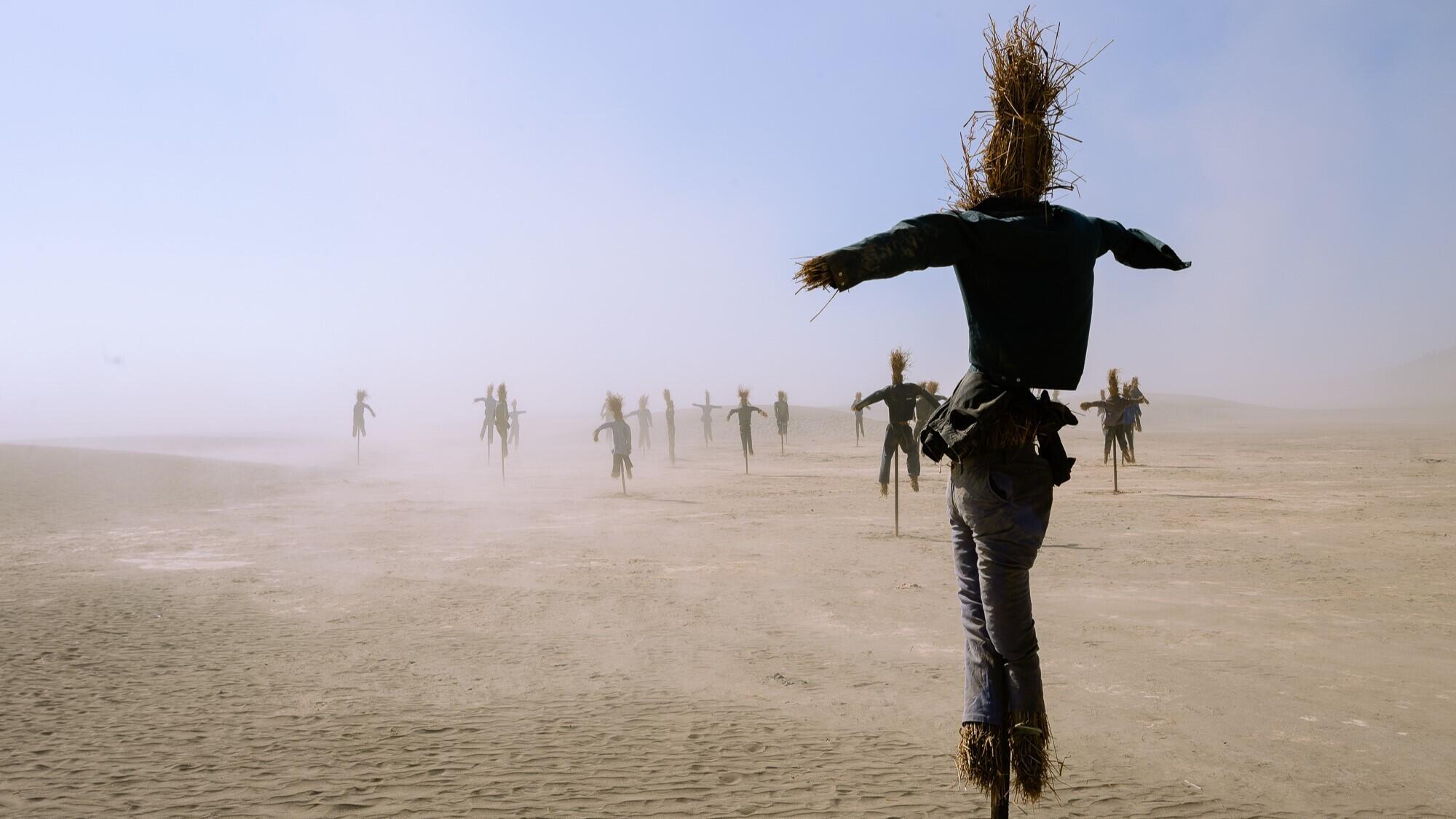
Congo, an inspiration and an obsession
Since he found his way in life and in the arts, Baloji also finds his country of origin more and more. In his creations, the Congo often appears as an inspiration and an obsession. From his hit song All this will not give you back the CongoPassing by The Day After/Independence Cha-chato imaginary Africa in Augur, he approaches the continent where he was born with saturated colors, impactful texts and surprising tones. On the other hand, when asked what he, the artist, wishes to change in the Democratic Republic of Congo, he answers:
“ There are elections [en RDC] which will take place at the end of December and I think that we are powerless in the face of the issues which have effect today. Because the political and geopolitical issues in fact go beyond the desire for emancipation that artists can carry. Unfortunately, this is beyond us. »
